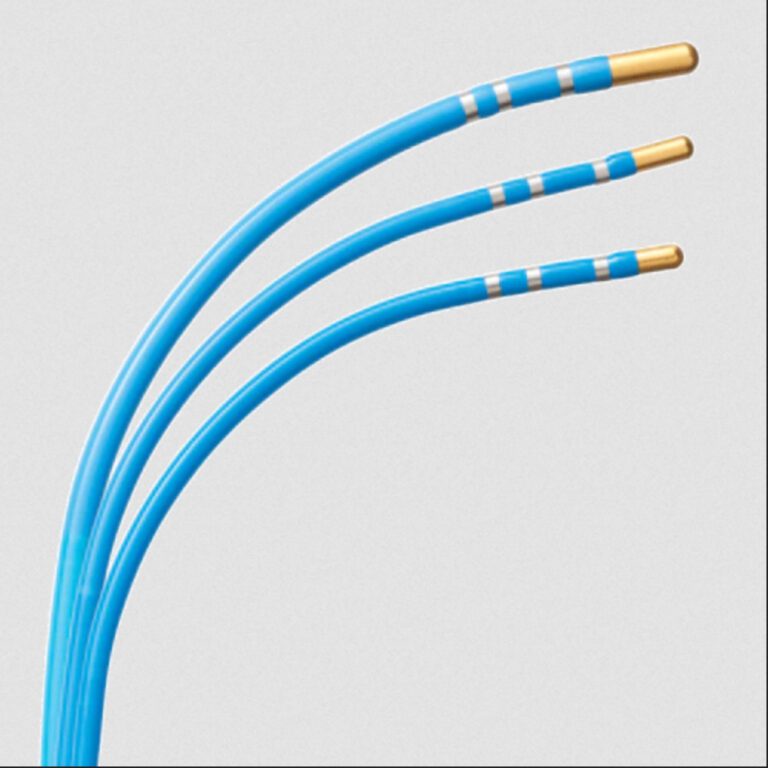
Medtronic plc (NYSE:MDT), a global leader in healthcare technology, today announced that the Freezor™ and Freezor™ Xtra Cardiac Cryoablation Catheters are approved by the U.S. Food and Drug Administration (FDA) and are the only ablation catheters approved to treat the growing prevalence of pediatric Atrioventricular Nodal Reentrant Tachycardia (AVNRT).
AVNRT is the most common form of supraventricular tachycardia (SVT), and is a life-threatening abnormal heart rhythm, with 89,000 cases each year and growing. Nearly 35% of AVNRT cases occur in pediatrics, or, children under the age of 18. Due to an abnormal circuit within the heart’s conduction system, AVNRT causes a very rapid heart rhythm, and if left untreated, can affect the heart’s ability to pump normally, leading to palpitations, lightheadedness, and syncope.
Catheter ablation is a first-line therapy for treatment of AVNRT. The Freezor and Freezor Xtra Catheters are flexible, single-use devices used to freeze cardiac tissue and block unnecessary electrical signals within the heart. The Freezor family enables safe and effective focal cryoablation therapy and has treated more than 140,000 patients across 67 countries. Cryoablation can reduce the risk of permanent AV block, a complication of AVNRT procedures performed with radiofrequency (RF) ablations that results in the partial or complete interruption of the heart’s electrical signals, which dangerously disrupts heart rhythm.
“There are very few devices approved to treat medically complex pediatric cardiology patients today,” said Bryan C. Cannon, M.D., professor of pediatrics and past president of the Pediatric & Congenital Electrophysiology Society (PACES), the largest organization in the world for pediatric rhythm specialty doctors. “With an FDA indication expansion, the Freezor and Freezor Xtra cardiac cryoablation catheters allow even the youngest of cardiology patients access to a safe, life-enhancing technology that will help advance cardiac care for AVNRT.”
The indication expansion approval is supported by results from ICY-AVNRT and multiple pediatric randomized, multi-center studies that demonstrated the safety and effectiveness of the treatment of AVNRT using the Freezor and Freezor Xtra cardiac cryoablation catheters. ICY-AVNRT data reported acute procedural success of 95% with no reports of permanent pacemaker due to complete AV block.1 The larger body of evidence, including a total of sixteen studies, also observed high efficacy rates and low adverse events.2-17
The Freezor cardiac cryoablation catheter was first commercially available in the U.S. for adult use of AVNRT in 2003, followed by the Freezor Xtra cardiac cryoablation catheter in 2016. The Freezor family of cryoablation catheters also includes the Freezor MAX cardiac cryoablation catheter, which is approved for use in conjunction with the Arctic Front™ Advance cryoballoon for the treatment of atrial fibrillation (AF).
“We’re proud of our work with PACES and FDA in this first-of-its-kind, multi-stakeholder initiative to address a critical patient population,” said Rebecca Seidel, president of the Cardiac Ablation Solutions business, which is part of the Cardiovascular Portfolio at Medtronic. “The shared commitment to collaborate and grow this therapy’s unique position to treat AVNRT patients demonstrates our confidence in the proven safety and efficacy of our cryoablation technology.”
Medtronic has pioneered cryoablation technology, with an industry-leading and extensive body of evidence, including proven safety and efficacy in treating AF and AVNRT. To date, more than one million patients have been treated with Medtronic cryoablation therapy worldwide.
In collaboration with leading clinicians, researchers, and scientists worldwide, Medtronic offers the broadest range of innovative medical technology for the interventional and surgical treatment of cardiovascular disease and cardiac arrhythmias. The company strives to offer products and services of the highest quality that deliver clinical and economic value to healthcare consumers and providers around the world.